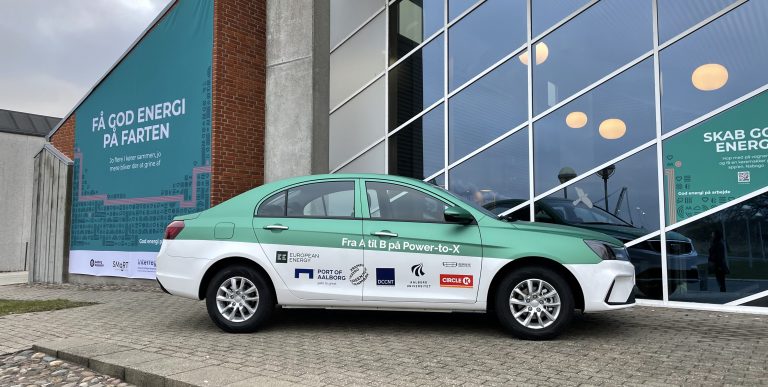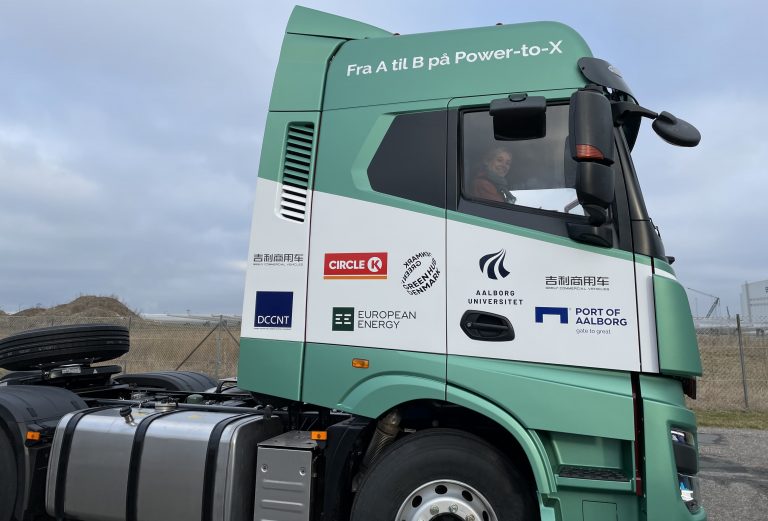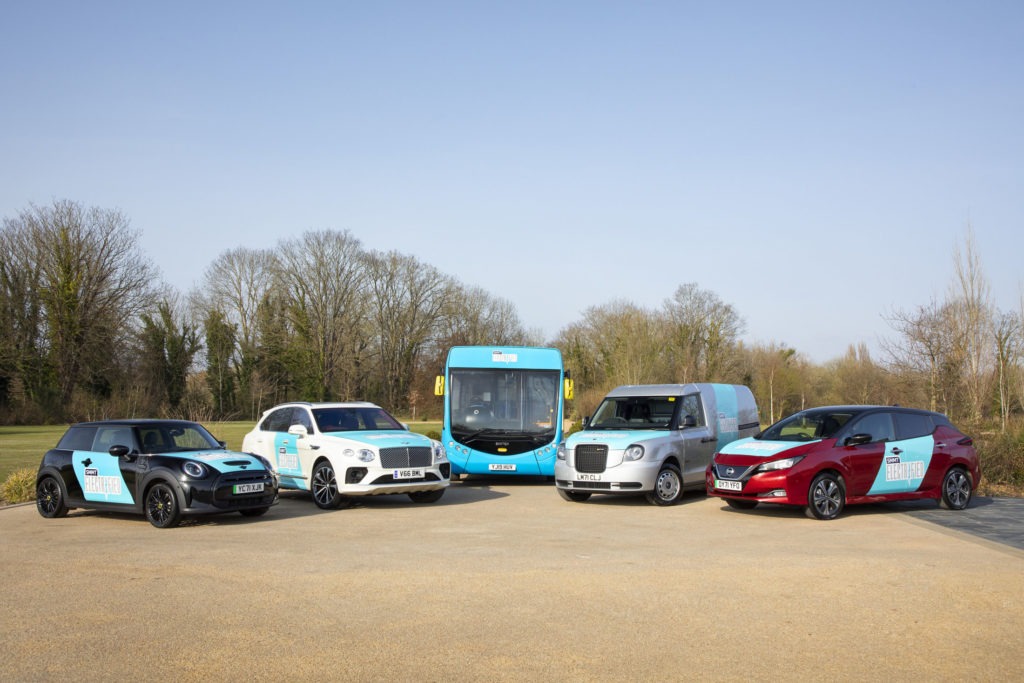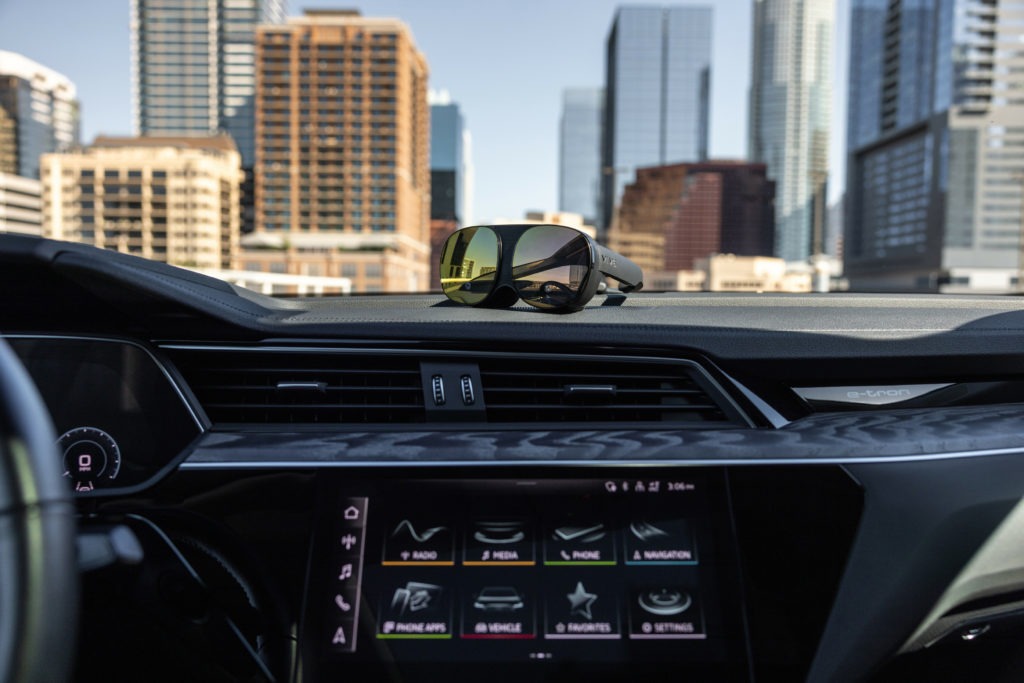Geely joins Danish e-fuels trial with methanol vehicles
31 March 2022

China’s Geely has joined a Danish initiative to promote the production of e-methanol, with the company, which owns the Volvo brand, collaborating on a 15-month test and demonstration trial for the alternative fuel, as well as methanol vehicles, in Denmark.
The carmaker is working together with Circle K Denmark, Aalborg University, and Fonden Green Hub on the project. First test runs of Geely methanol vehicles took place recently, drawing attention from local politicians and the media.
Geely said it is the largest producer of methanol vehicles in the world. Its portfolio includes the Geely Emgrand methanol sedan and the Farizon M100 heavy-truck, both of which have been tested extensively and passed Chinese emissions standards. The carmaker’s methanol cars promise a 70% reduction in CO2 emissions compared to gasoline models.
E-methanol fuel
‘In the race to reach carbon neutrality, methanol and electric vehicles are two powerful tools in the toolshed. Both have their own advantages and together complement each other. Green methanol is available now, methanol infrastructure can be built quickly at a minimal cost, and using green e-methanol can immediately reduce carbon emissions. Fighting climate change is a responsibility for all and Geely Holding supports green e-methanol as much as it does pure electric mobility,’ the company said.
As part of the initiative, Geely has made available two Emgrand methanol sedans and the M100 heavy-truck to its Danish collaborators. The goal is to promote e-methanol in Europe ‘as well as [to support] preparations for the safe introduction of e-methanol fuel in the EU,’ the carmaker said.
Denmark is no stranger to e-methanol, with the country known to produce more sustainable and carbon-neutral renewable fuels. Green methanol has found its way into commercial shipping; Danish company Maersk has been eager to support e-methanol as marine fuel. Geely emphasised Denmark is the ‘best choice’ to test and demonstrate methanol vehicles in the EU, given the country’s focus on the production, storage, and transport of methanol fuel.
The Port of Aalborg, Denmark’s largest inland port, has just signed an agreement with a Danish developer of renewable energy to produce green e-methanol for use in the transport sector. Plans are underway to build a large-scale e-methanol plant there, which will be completed by 2025 and will produce 75,000 metric tonnes of e-methanol per year.

The International Council on Clean Transportation (ICCT) points out that most methanol produced is derived from fossil fuels. E-methanol still emits greenhouse gases, but it is made by combining green hydrogen and captured carbon dioxide from industrial sources, overall releasing less carbon emissions. It is often regarded as a good alternative fuel for ships.
Methanol vehicles
It is not the first time for Geely to test its methanol vehicles in Europe. Another trial took place in Iceland, where the carmaker demonstrated that its Emgrand methanol sedans achieved average well-to-wheel emissions of 46g of CO2 per km. The car manufacturer has big plans, with its methanol vehicles undergoing EU certification in the future.
Geely has been developing methanol vehicles and its technologies for around 17 years. It has introduced more than 20 methanol vehicles, also securing 256 patents for its methanol technologies. The company was the first car manufacturer in China to research and develop methanol vehicle solutions.
In its home market, Geely is working with partners across China to expand methanol-fuelled vehicles, having already deployed fleets as taxis in cities there. In 2016, the Chinese manufacturer invested in Carbon Recycling International (CRI), which uses renewable energy and carbon capture to synthesise e-methanol on an industrial scale. Since then, it has helped CRI launch its technology in the Chinese market.



